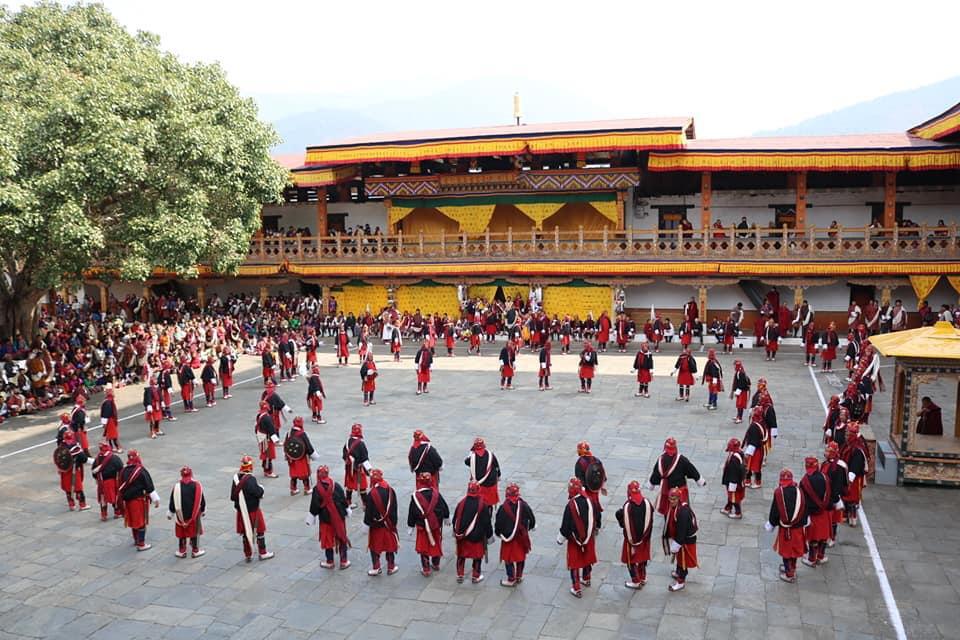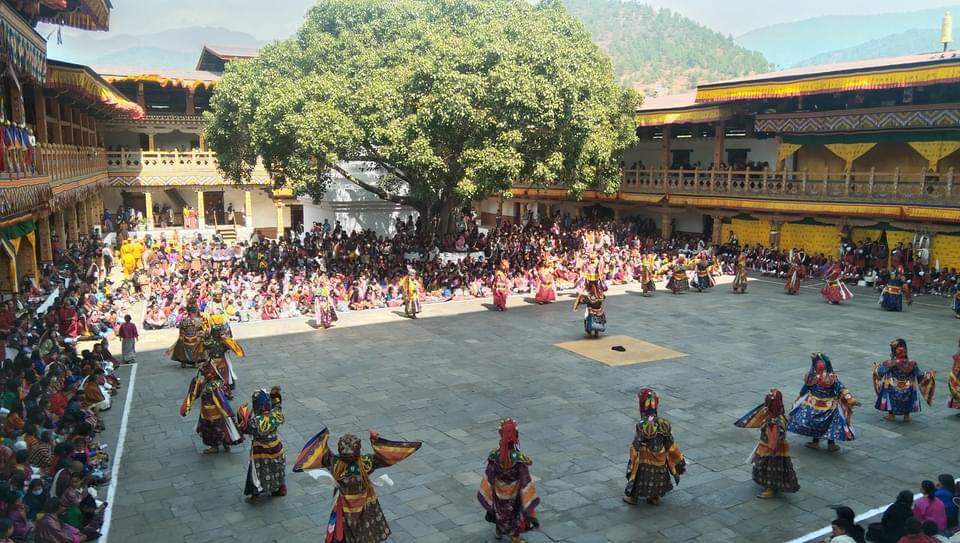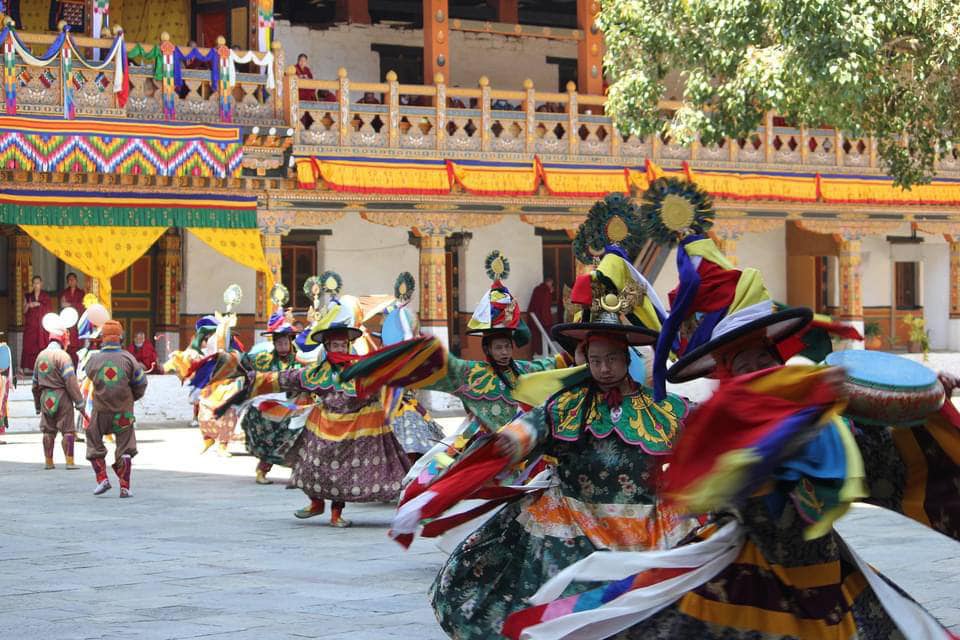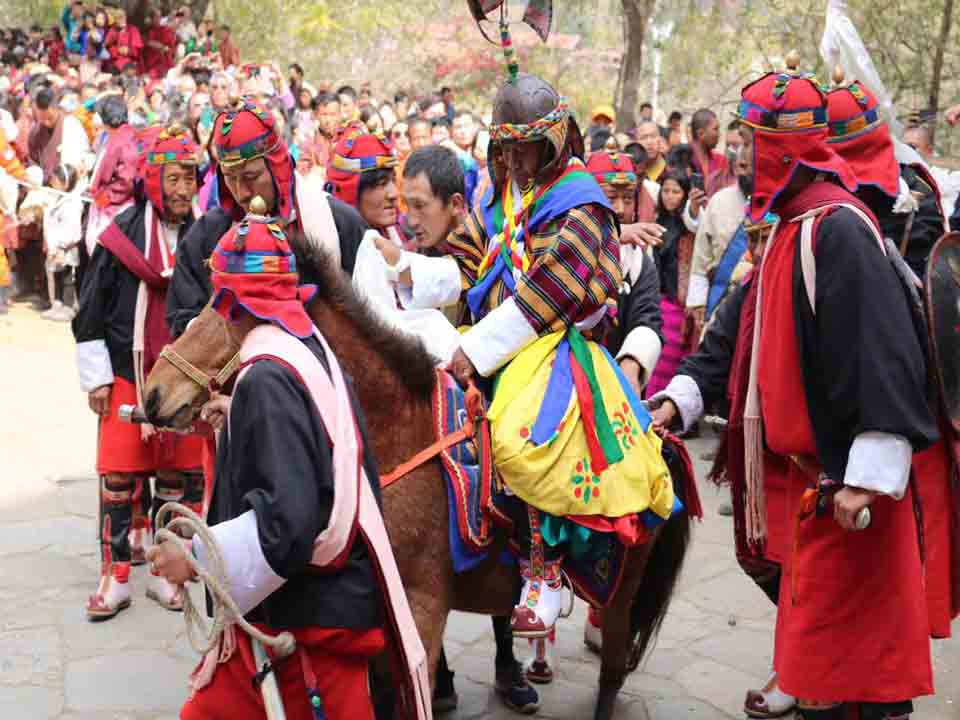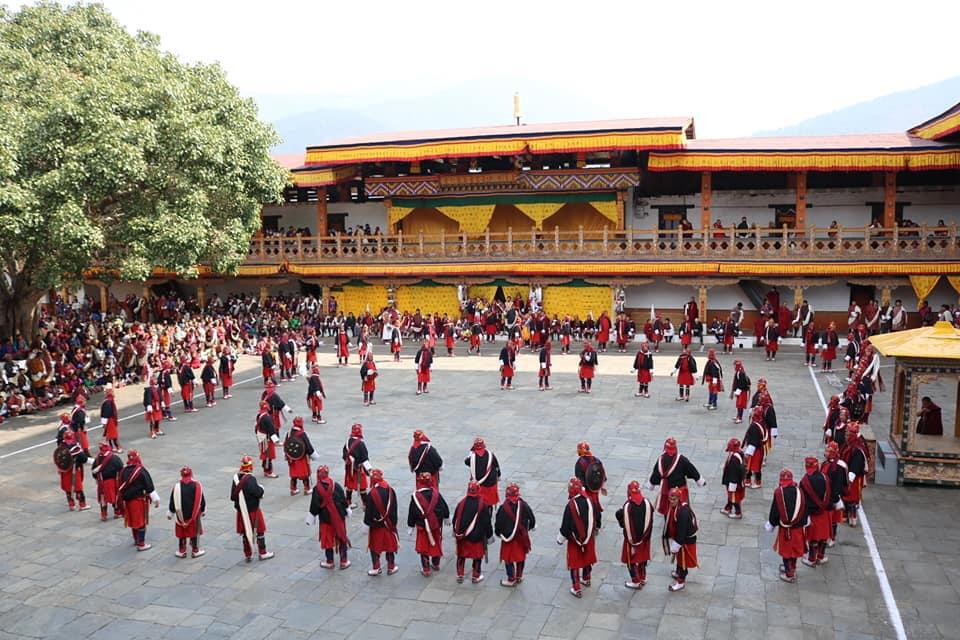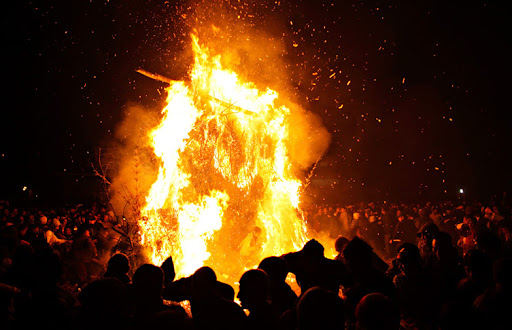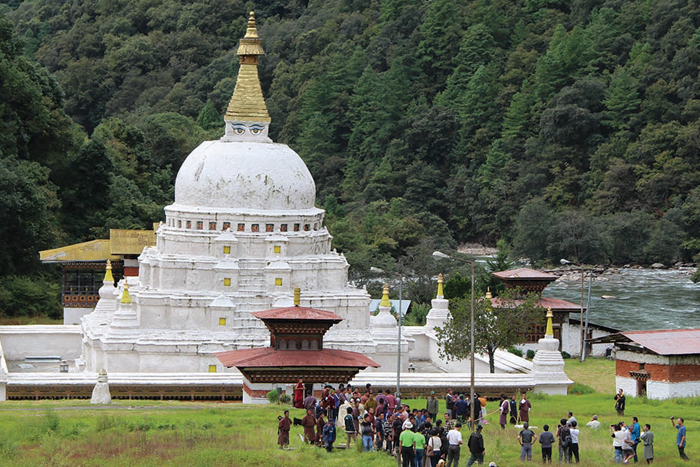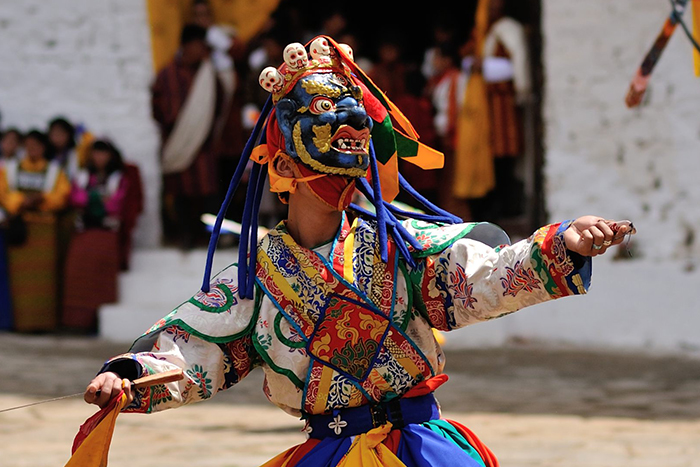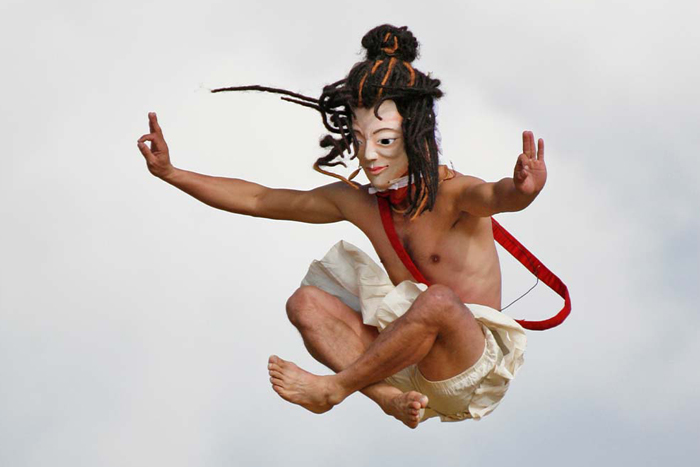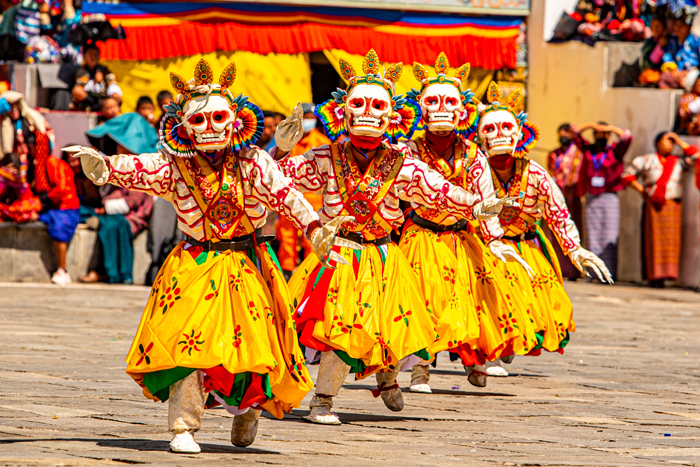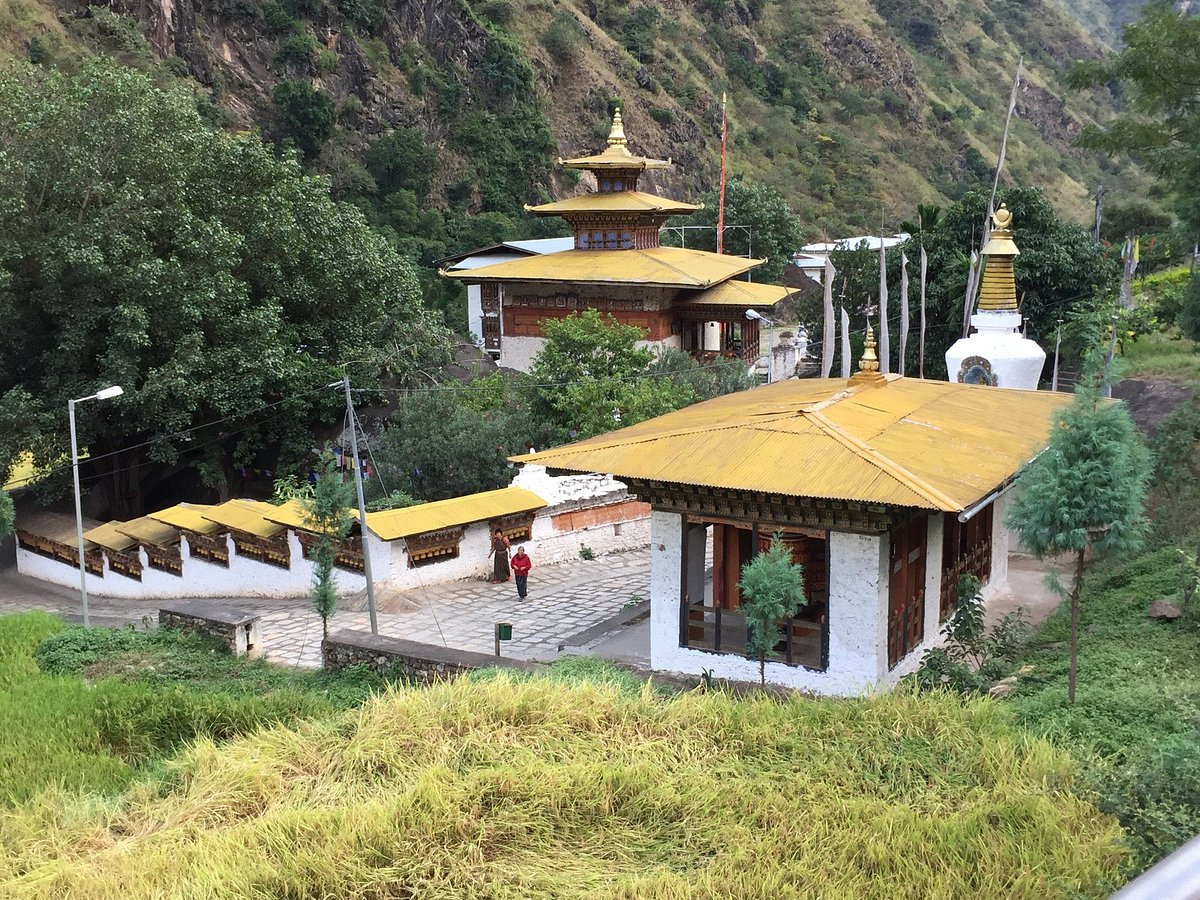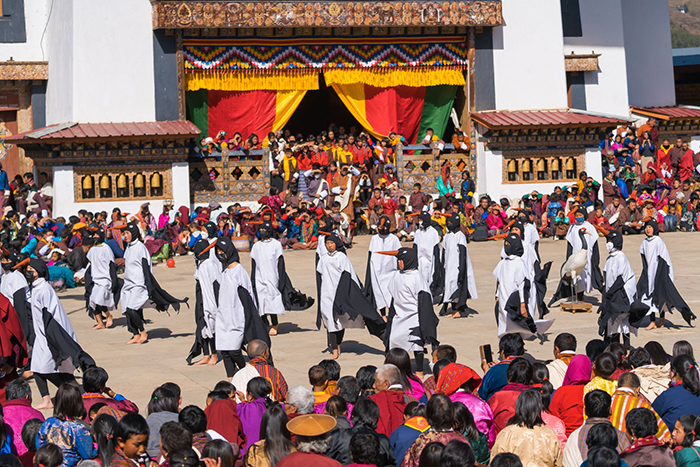Punakha Tshechu
$600





Tour Summary
One of the biggest festivals in the Bhutanese calendar, the Punakha Tshechu is held every year, sometime in February or March. The most important display during the five-day festival is the re-enactment of the Tibetan invasion of Bhutan in 1639. In this theatrical display, a mock throwing of a relic to the Mochu River is dramatized along with a group performance by more than a hundred people dressed as warriors, popularly known as “Pazaps.”. This performance tells the story of 17th century Bhutan, when the Bhutanese were under siege by Tibetan forces. Devoid of a standing army of its own, the duty to hold the Fort fell on the local militiamen called “Pazaps”, from the eight great villages (Tshogchens) of Thimphu. The invaders were routed. To celebrate the victory, Shabdrung Ngawang Namgyal introduced the Punakha Drubchen. The 17th century scene is re-enacted during the Drubchen with local men dressed as “Pazaps”.
Entry and Exit: Paro
Venue: Punakha Dzong Courtyard
Arrive at Paro international Airport. During the journey to Paro, one will experience a breath taking view of Mount Everest, Kanchenjunga and other famous Himalayan peaks, including the sacred Jomolhari and Mount Jichu Drake in Bhutan and particularly exciting is the section through the Bhutanese foothills and the thrilling landing.
On arrival at Paro International Airport, you will be received by our representative, who will escort you for sightseeing, such as the National museum of Bhutan and Paro Rimpong dzong.
After lunch at Paro Town, we will visit Kyichu temple, one of Bhutan’s oldest temples built in 659 AD.
Overnight at hotel.
Day 2: Excursion to Taktsang
After early breakfast, we will drive up to the Ramthangka (base camp) of Taktsang and then hike to Taktsang, the Tiger’s nest.
The five-hour round trip follows an ancient but oft-trodden footpath flanked by water-driven prayer wheels.
The temple, precariously perched on a hair-raising ravine about 1,000 metres above the valley floor, is considered sacrosanct as it was in a cave within this temple that the eight century tantric saint, Padmasambhava, subdued the evils who obstructed the teachings of the Buddha. The saint is believed to have come to Taktshang in a fiery wrathful form riding a tigress. Over the years, many Buddhist saints have meditated in and around the temple and discovered numerous hidden treasure teachings.
Visit the ruins of Drugyel Dzong enroute. The fortress known as the “Castle of the Victorious Drukpa”, is a symbol of Bhutan’s victory over the Tibetan invasions in the 17th and 18th centuries. We can also get a view of the sacred mountain, Jumolhari, along the way. On the way back to our hotel, we will visit the 7th century Kyichu Temple, believed to have been built on a place that resembled a knee of a giant ogress.
Day 3. Paro-Punakha: After breakfast, drive to Punakha – approximately 4-hour drive through picturesque valleys and mountain slopes dotted with typical Bhutanese villages.We will pass the famous Dochula pass (3,100m) where on a clear day we can see the entire eastern Himalayan range, teeming with 6,000m to 7,554m snow-capped mountains. The pass also known for its abundant species of extremely beautiful flowers has 108 Buddhist stupas exquisitely built around a mound, adding to the natural splendor of the place.
From the pass we descend to the sub-tropical valley of Punakha. Punakha served as the ancient capital of capital and still possesses the country’s main treasures in the form of Buddhist relics. Resembling a gigantic ship on an ocean floor from afar, and girdled by two (Male and Female) rivers, the castle-fortress also represents the best specimen of Bhutanese architecture.
En-route visit the Temple of Fertility – Chimi Lhakhang. This temple, built in the 15th century to honour the “Divine Madman”, a saint iconoclast who is also associated with phallus worship, attracts barren couples from all over to receive fertility blessings from an anointed phallus.
Halt at hotel.
Day 4: Punakha Festival
One of the Kingdom’s most popular Tsechus and held in the Majestic Punakha Dzong (Fortress), the highlight of this festival is the Drubchen, which precedes the Tsechu.
Punakha Drubchen tells the story of 17th century Bhutan, when the Bhutanese were under siege by Tibetan forces. Devoid of a standing army of its own, the duty to hold the Fort fell on the local militiamen called “Pazaps”, from the eight great villages (Tshogchens) of Thimphu. The invaders were routed.
To celebrate the victory, Shabdrung Ngawang Namgyal introduced the Punakha Drubchen. The 17th century scene is re-enacted during the Drubchen with local men dressed as “Pazaps”.
The Tsechu follows the Drubchen.
Overnight at hotel.
Day 5. Punakha-Thimphu
After breakfast, we will drive to Thimphu and witness the capital city’s historical and significant places.
Thimphu has lots to offer and the pick for you will firstly be the Memorial Chorten, one of Bhutan’s most beautiful stupas, built in memory of the Third King, Late His Majesty Jigmi Dorji Wangchuck, known as the Father of Modern Bhutan. A short drive from there will take you to Buddha Point, where the statue of the World’s largest Future Buddha (Maitreya) will be seen.
From there we will move to the Handicraft’s Emporium, Weaving Centre and Changangkha monastery, one built in the 12th century. There will also be visits to the Takin zoo, Sangaygang, which offers a view point of Thimphu valley and a Nunnery.
Lunch will be served at a local restaurant, after which we visit the National Library where ancient manuscripts are preserved and the Wood Craft and Painting school.
In the evening, we will visit Tashichho Dzong, the main secretariat building. This massive structure houses part of the government Ministries, the office of the King and the Throne Room. It also houses the State Monastic Body and the living quarters of the Chief Abbot and the senior monks.
Overnight at hotel.
Day 6: Departure from Bhutan
After breakfast, we will drive to Paro international airport for your onward flight. Our representative will see you off.
|
GROUP SIZE: Any group Size |
TOUR MONTHS: |
Minimum Daily Package Inclusions
⇒ Accommodation in 3 stars approved hotels
⇒ US$ 40 per person visa fees (single entry only)
⇒ Visa arrangement for your stay in Bhutan as per the itinerary
⇒ 35% SDF – Sustainable Development Fees
⇒ Meals – breakfast, lunch and dinner
⇒ English speaking licensed tour guide
⇒ Transfers and sightseeing as per the itinerary, check vehicles
⇒ Entrance, museums and park fees indicated in the itinerary
⇒ Bottled drinking water throughout the journeys
Minimum Daily Package Exclusions
⇒ Flight Fares of any kind (domestic or international)
⇒ Personal Expenses, phone calls, laundry, shopping, etc
⇒ Gratitude or Tipping
⇒ Single Room Supplement
⇒ 4 stars & 5 stars Hotels/Resorts
⇒ Language Speaking Guide
⇒ Travel and Medical Insurance
⇒ Extra Activities Cost (Cycling, Motorbike, River Rafting, Horse Ride, etc)
Related Tour
-
Jambay Lhakhang Drup
The Naked Dance of Jampa Lhakhang Drub...
$1100 -
Chorten Kora Tshechu
Unlike other festivals, this is one where...
$1500 -
Paro Tshechu
Started by Zhabdrung Ngawang Namgyal, and Penlop...
$800 -
Druk Wangyel Tshechu
Druk Wangyel Tshechu is a one day...
$500 -
Thimphu Tsechu
Festivals are the biggest tourist attractions. Religious...
$500 -
Gomphu Kora Tshechu
The Kora festival at Gomphu Kora was...
$1400 -
Black Necked Crane Festival
This is an expedition that will bring...
$600


